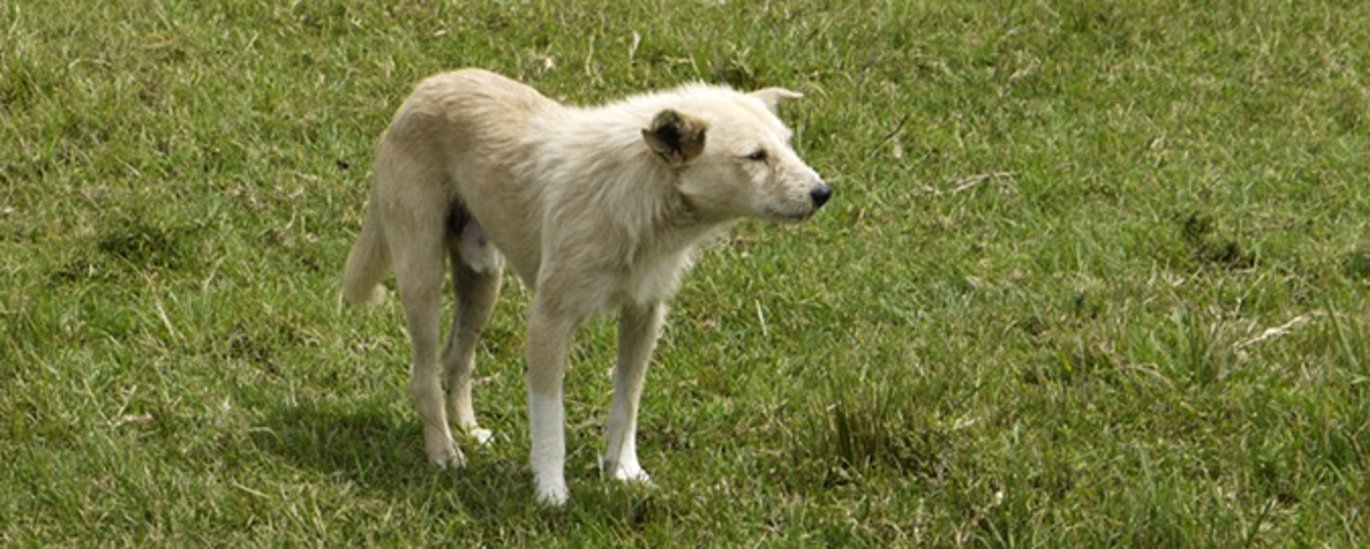Research team to develop management program for livestock guard dogs
A large number of free-roaming, uncontrolled dogs are becoming a major problem for people and wildlife.

In April, the first step was taken to initiate a management program for the livestock guard dogs in Mara North Conservancy (MNC). The Maasai are very dependent on their dogs which they use to guard their livestock, especially during the night. However, in recent years the number of dogs has increased rapidly and free-roaming, uncontrolled dogs are becoming a major problem for the wildlife. Not only do the dogs disturb and stress the wildlife by their presence, they are also known to chase wildlife and snap prey from the natural predators and scavengers. In MNC, a number of free-roaming dogs have even formed packs that efficiently hunt and kill wildebeest calves and other herbivores. A reduction and management of the dog population is therefore an important part of the conservation strategy of MNC.
Aim is to establish a sustainable population of healthy guard dogs
The overall aim of the program is to establish a sustainable population of healthy guard dogs in cooperation with the local landowners. Implementation of the program will reduce wildlife disturbance and interference, reduce transmission of diseases from dogs to wildlife, improve the health and working ability in the dog population, educate dog owners in dog management, provide veterinary students with competencies relevant in wildlife conservation and management of free-roaming dogs and provide data for relevant research.
The management program will be done in agreement with the local landowners and in cooperation with MNC and the Landowners' Committee. The program will be undertaken by the universities of Copenhagen, Denmark, Nairobi, Kenya and Giessen, Germany and will include spaying/neutering of dogs to reduce numbers, vaccination and health check to improve health and prevent transmission of diseases, as well as sampling from dogs (e.g. feces or blood) for research purposes.
Preliminary survey conducted in April 2016
In order to implement a program such as this, it is important to know the current status in the dog population and communicate the plan to the dog owners so that implementation can happen cooperatively and in a positive atmosphere.
In April a group of veterinarians from the International Livestock Research Institute (ILRI), the University of Nairobi and the University of Copenhagen came to Karen Blixen Camp, MNC to conduct a survey. House-to-house interviews as well as line transects were conducted. Seventy-five homesteads out of 344 in the conservancy were interviewed. The preliminary results estimate the total human population of the MNC to be 7232 and the total estimated dog population to be 1903, giving a very high human to dog ratio of 4:1. The interviewed residents manage the dog population by removing female dogs. The current methods for removing dogs by stoning are inhumane and residents would be interested in alternative population management tools such as spaying. People also report outbreaks of rabies and requested vaccinations and medicines for their dogs. In less than half of the interviewed households (42%) dogs were vaccinated against rabies. During two line transects of Mararianta town, 76 free roaming dogs were observed. Many residents thought that the numbers of dogs in Mararianta town were a problem. However, previous indiscriminate dog culls have upset residents as owned but free roaming dogs have been killed. Uncovered rubbish and an open slaughter facility in the town are likely to attract dogs to town and more appropriate waste disposal should reduce the numbers of dogs.
Next step in August 2016
The next step in the program is to run the first round of vaccination/health checking/spaying as a pilot in order to gather experience on the logistics. The pilot is planned to take place at the beginning of August with participating students and faculty from the three universities. The program will be based in Karen Blixen Camp.
Read more here
For more information please contact:
Karen Blixen Camp: Jesper Stagegaard, Chairman
Rikke Langebæk, DVM, PhD, Assistant professor, Department of Veterinary Clinical and Animal Sciences, Faculty of Health Sciences, University of Copenhagen